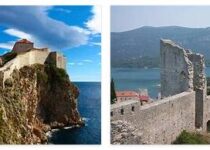NATO
Also known as North Atlantic Treaty Organization on AbbreviationFinder, NATO is the only organization in Europe that today can deploy large international military forces and carry out major complex operations. Therefore, other organizations have shown interest in cooperating with NATO, especially the UN and the EU.
In 1992, NATO began cooperating with the UN on peacekeeping operations in the former Yugoslavia and later took over on behalf of the UN.
However, the potentially large field of cooperation in the future may be cooperation with the EU. Due to the growing European will to carry out international peacekeeping operations and the lack of resources within the EU for military activities, it can be seen as very practical to allow the EU to use Natural Resources in such operations. This has also happened when the EU took over a small NATO operation in Macedonia, using NATO’s military command resources. When the EU took over in Bosnia in 2005, a similar situation arose in a much larger effort.
Cooperation is simplified by the fact that over 70% of EU Member States, with around 95% of the EU population, are also NATO members.
The EU’s relationship with NATO has been controversial, as some EU member states have long wanted to see an autonomous EU capable of conducting operations without NATO support. This issue was raised in the spring of 2003, when Belgium, France, Germany and Luxembourg held a separate summit and proposed that the EU should have its own military headquarters capable of leading units. The proposal, which came about during the great wave of division caused by the Iraq war (see Progress), however, fell later. It was replaced by a structure where the EU as such has a group of staff officers stationed at the headquarters that supports the top commander of all NATO operations. Developments since 2011, when the Libyan war clearly showed that only NATO could practically handle such a complex operation, however, has meant that most of the voices that previously wanted to see a military autonomous EU have fallen silent. The French reintegration into NATO’s military command structures in 2009 has also made a strong contribution to this.
Similarly, the reactions to the Ukraine conflict, ie Russia’s annexation of Crimea in 2014 and support for the Russian-speaking separatists in eastern Ukraine, have led to a division of labor. The EU is handling the probably important, and for Russia perhaps even more provocative, economic sanctions against Russia, while NATO is responsible for the military deterrence capability and the military protection of its members’ territories.
NATO countries have also developed forms of cooperation with several other regions. For so many years, the so-called Mediterranean Dialogue has existed, in which NATO and the countries around the Mediterranean (including North African states) discuss common issues. Through its commitment to NATO’s Afghanistan operation, countries such as Australia, New Zealand, Japan and South Korea have also gained closer ties with the Alliance. This development was not entirely uncontroversial within the alliance as some member states claimed that NATO was being pushed too far from its regular task. The establishment of a new cooperation program in 2014 for particularly important partners, EOP, can possibly be seen as a response to the criticism. This was given only to five important partner countries: Sweden and Finland, Jordan, Georgia and Australia (see also Progress and Sweden and NATO). Thus, NATO set a limit to its own global ambitions.
Sweden and NATO
Both the Swedish parties and the Swedes in common are divided in their views on a future Swedish NATO membership. Since 2014, Sweden has been part of an extensive cooperation program with NATO.
The new security policy situation in the world and Sweden’s EU accession in 1995 triggered a multi-year debate on Swedish security policy. Various investigations have shown that Sweden for large parts of the post-war period had extensive unofficial cooperation with certain NATO states. Fixed communications with some NATO staffs were built up and a number of Swedish military airfields were adapted to be able to receive NATO bombers. In May 1994, Sweden joined the Partnership for Peace (PFF), ie NATO’s cooperation agreement for countries in Europe that are outside NATO (see Progress). Sweden took an active part in PFF operations and Swedish units were directly under NATO command in all of NATO’s major peacekeeping operations, including in Kosovo, Afghanistan and Libya. The collaboration meant that the PFF system’s defense planning process was integrated into Swedish national defense planning and that the Swedish defense gradually introduced NATO standards. Swedish officers were deployed at several of NATO’s most important military headquarters and a Swedish NATO embassy adjacent to the headquarters in Brussels was established.
Closer to NATO
Following Russia’s war with Georgia in 2008, the security situation in the Baltic Sea region deteriorated. At Easter 2013, the Swedish defense was hit by a shocking experience when Russian bombers simulated an attack on a target in Stockholm. As the Swedish pilots had Easter leave, Danish pilots from NATO’s base in Lithuania had to come to the rescue. This event, as well as the Russian illegal annexation of Crimea in Ukraine in 2014, once again brought the issue of Swedish NATO membership high on the agenda in the Swedish debate. At the same time, Sweden’s and Finland’s strategic location next to the Baltic Sea was of great interest to NATO. But Swedish opinion about a Swedish NATO membership was divided and Moscow had on several occasions threatened to take military action if Sweden joined NATO.
The solution was a new program for expanded cooperation that NATO introduced in 2014 with its closest partners: the Enhanced Opportunities Program, EOP (see Structure). This was given to five important partner countries: Sweden and Finland, as well as Jordan, Georgia and Australia.
Within the framework of the EOP, Sweden and NATO deepen their military cooperation capacity and political dialogue and carry out joint exercises. In 2018, Sweden and Finland, together with all other member states, participated in Trident Juncture 18, the largest exercise since the Cold War. The exercise took place in Norway and meant that several countries moved troops across Sweden. Since 2013, Sweden has also participated with units in a reserve force register for the task force, NRF (see Uppbyggnaden).
Swedish public opinion
Four of the Riksdag’s eight parties (the Liberals, the Moderates, the Center Party and the Christian Democrats) have now taken a stand for a Swedish NATO membership. The Social Democrats, the Green Party, the Left Party and the Sweden Democrats continue to be opposed to Swedish NATO membership.
According to the SOM Institute’s surveys, support for Swedish NATO membership increased during the period 2012–2016. In recent years, support has decreased somewhat again, while a large proportion of respondents – 38 percent in the SOM survey from 2018 – believe that the proposal for Swedish NATO membership is neither good nor bad. At the same time, a narrow majority (60 percent) of Swedes think that Sweden should retain the freedom of military alliance.



